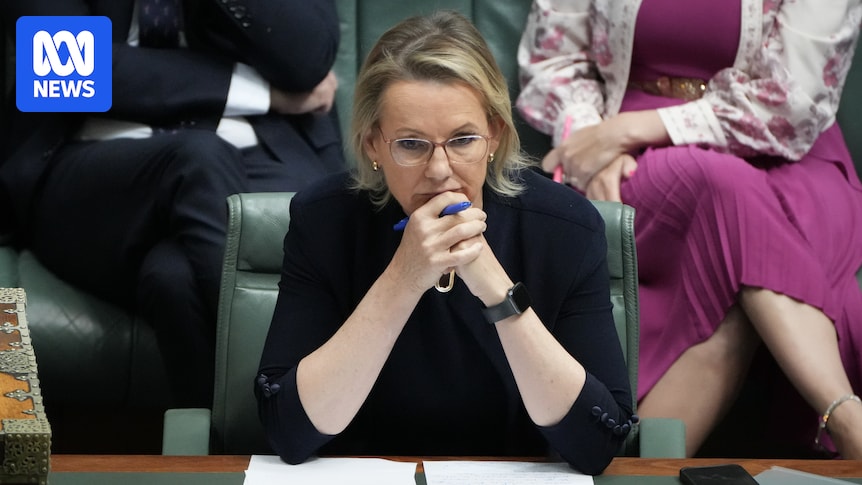
The mood within the Coalition has soured over the Australian government’s proposed rewrite of the “broken” environment laws, just days after parts of the legislation were shared with key stakeholders. The draft laws, aimed at overhauling the Environment Protection and Biodiversity Conservation Act (EPBC Act), have been distributed to environment and business groups, marking the third attempt in recent years to reform these laws.
Initially, there was optimism that an agreement could be reached between the government and the Coalition. However, as details emerged, the mood shifted, with one Nationals MP describing the proposals as “environmental ideology.” Environment Minister Murray Watt confirmed that a key Greens demand for a “climate trigger” to block coal and gas projects would not be part of the new laws. The Coalition claimed this as a victory following months of negotiations with the government.
Opposition’s Skepticism and Concerns
Despite this perceived win, Opposition Leader Sussan Ley, who previously struggled to reform the EPBC Act nearly five years ago, expressed skepticism about the government’s latest attempt. “Unless this government can give industry the confidence that it cares about accelerating those [environmental] approvals … then I fear that projects like the critical minerals project that was inked in Washington just a few days ago is not going … to bring forward the development that is expected, needed and deserved,” Ms. Ley stated.
Ms. Ley criticized the existing laws as a “basket case” and argued that the government’s proposal lacks measures to address slow approval timeframes, which are crucial for developers and investors. She emphasized that more work is needed to convince the Coalition of the reforms’ efficacy, stating that the party would examine the proposals in detail once they are formally introduced.
Shadow Ministers Weigh In
Shadow Environment Minister Angie Bell noted that while the Coalition had engaged in good faith negotiations, the full draft legislation had yet to be seen. “It’s clear that Labor’s new laws do not strike the right balance,” she remarked. Ms. Bell criticized the proposed laws for their “unworkable definitions, unclear ‘net gain’ rules, bigger penalties, a new bureaucracy and more red tape,” which she argued would hinder investment rather than protect the environment.
Government’s Defense and Expert Opinions
Environment Minister Murray Watt urged critics not to rush to conclusions, highlighting the potential benefits for both the environment and business. “I’ve seen some early reactions … I would just encourage some of the people saying those things to take a look at the bill,” Senator Watt told Sky News. He expressed hope for support from both the Coalition and the Greens, emphasizing the improvements the bill could bring.
“The alternative is if they vote against these bills they would be voting against improvements for business to get approvals done more quickly, they would be voting against improvements to the natural environment, and I wouldn’t have thought either the Coalition or the Greens want to be accused of that.”
Prominent economist Ken Henry supported Mr. Watt’s decision to exclude a “carbon trigger” from the legislation, describing it as an “extraordinary opportunity” to address longstanding issues in nature laws. “Ruling out a climate trigger in the legislation is something that matters a lot to a lot of people who are taking an interest in this area of policy,” Mr. Henry stated on 7.30. He argued that climate policy could be addressed separately and more ambitiously.
Nationals’ Criticism and Future Implications
Meanwhile, Nationals MPs expressed concern over the draft laws. Shadow Trade Minister Kevin Hogan voiced worries about the inclusion of forestry projects under federal environment law, while Shadow Transport Minister Bridget McKenzie raised issues with proposed “go zones” that might infringe on farmers’ property rights. Senator McKenzie stressed that the Nationals would not support laws that undermine farmers’ rights to appeal against land resumption for projects.
“The last thing we want to see is a repeat of Victorian legislation where the Allan Labor government has seriously undermined private property rights,” Senator McKenzie said.
Mr. Hogan dismissed the bill as “environmental ideology,” arguing that it would complicate production and employment in Australia. “They are making it as hard as they can for people in this country to produce stuff and to employ people, and this legislation’s just going to add to it,” he told Sky News.
Potential Alliance with the Greens
The future of the bill remains uncertain, with the Greens also rejecting the proposed reforms. Greens environment spokesperson Sarah Hanson-Young criticized the reforms as being “riddled” with clauses favoring industry. “The Greens have been very clear from the start — we will not rubber stamp laws that fail to protect our native forests, wildlife and climate,” she asserted.
If the Coalition rejects the legislation, it could become a pivotal test of the Greens’ role in this term of parliament, especially after Labor accused them of being blockers in the Senate during the previous term. Senator Watt has indicated a willingness to negotiate with either the Coalition or the Greens, suggesting that the EPBC Act reforms could be adapted to secure a deal.
The announcement comes as stakeholders and politicians grapple with the complexities of balancing environmental protection with economic development. As the debate unfolds, the proposed reforms could shape Australia’s environmental policy landscape for years to come.






